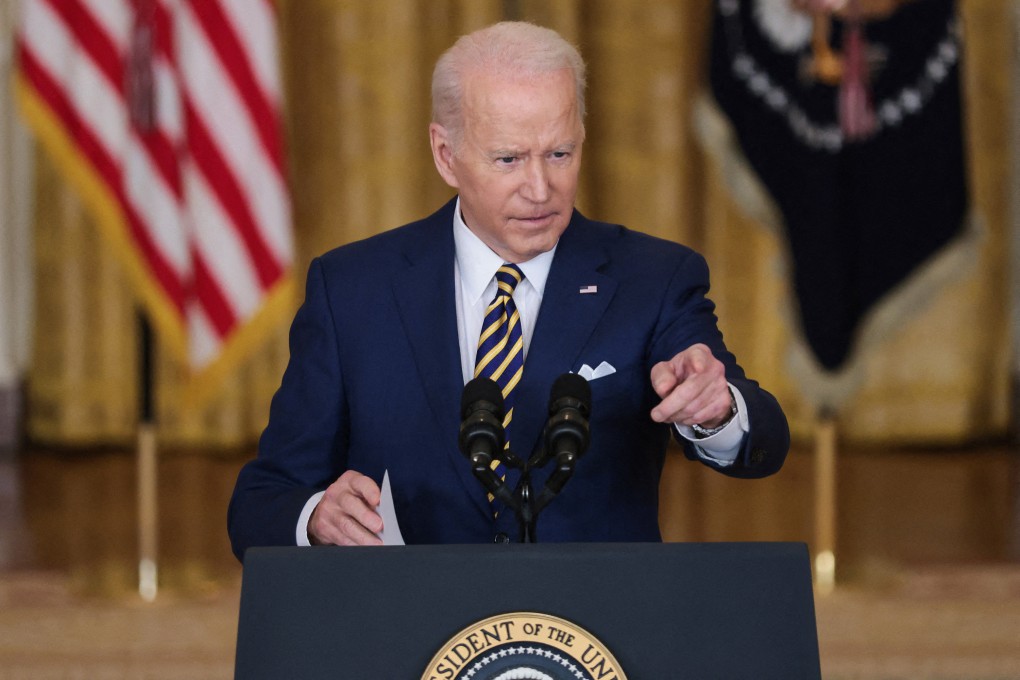Joe Biden marshalls diplomatic troops to counter falling polls at one-year mark
- Amid criticism, members of Biden’s administration try to make the case that there have been successes and that Donald Trump left them with multiple challenges
- ‘In some ways, China has become a bright spot for the administration’s foreign policy, achieving what they haven’t done elsewhere,’ says one analyst

The basic message during a flurry of public events involving Biden, Secretary of State Antony Blinken and UN Ambassador Linda Thomas-Greenfield was that the administration was dealt a tough hand by former president Donald Trump and has accomplished more than it receives credit for.
“You ask about failures. I’ve learned over 35 years in the Foreign Service having done [performance reviews] and being asked by my bosses to tell them my weaknesses. That is not for me to tell you our failings,” Thomas-Greenfield said on Thursday, one year after Biden’s inauguration.
“But again, I think we’ve made tremendous strides in spite of all the challenges that we were confronted with when President Biden took over on January 20.”
The administration drew on the cabinet members as criticism mounted that it has fallen short on messaging, if not execution. Blinken gave a major foreign policy speech in Berlin on Thursday, Biden gave a rare, two-hour press conference on Wednesday and Thomas-Greenfield made three appearances in 48 hours addressing a news organisation, a think tank and the business community.
